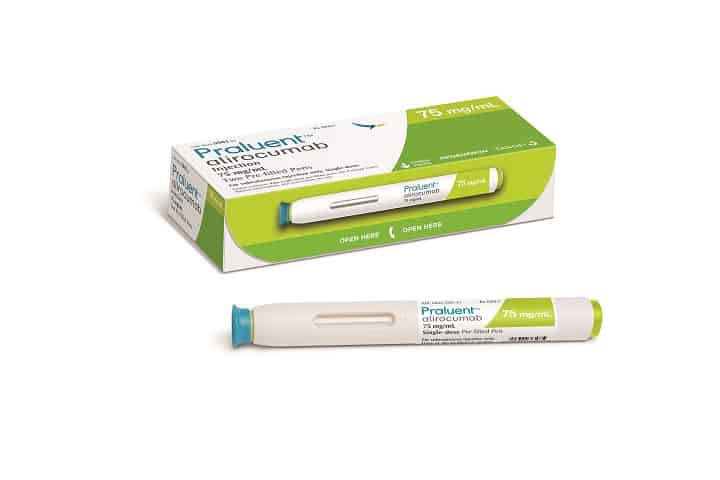
Sanofi and Regeneron heart drug Praluent available in UK
pharmafile | October 19, 2015 | News story | Sales and Marketing | Regeneron, Sanofi, alicrocumab, high cholesterol, praluent
Sanofi and Regeneron’s next-generation cholesterol-lowering treatment Praluent is now available for adult patients with high cholesterol in the UK, following European Commission approval.
Praluent, (alirocumab), is authorised for use in patients who are unable to reach their low-density lipoprotein (LDL), or ‘bad’ cholesterol treatment goals, after adapting their diet whilst taking the maximum tolerated dose of a statin and/or other cholesterol lowering therapies. The drug was given EC approval in September.
The two companies face a challenge to price the drug competitively. Praluent is a biologic drug, and therefore is far more expensive than statins, the mainstay of high cholesterol treatment. It is in a class of drugs called PCSK9 (proprotein convertase subtilisin kexin type 9) inhibitors, which are naturally occurring protein that prevents the liver from clearing LDL cholesterol out of the blood. The drug works by blocking the action of PCSK9, thereby allowing the liver to clear more LDL cholesterol from the blood, and so reducing LDL cholesterol levels.
Dr David Williams, medical director, Sanofi UK says: “The discovery of PCSK9 was a significant advance in the understanding of LDL cholesterol lowering. The availability of Praluent represents a real breakthrough for those adult patients with high cardiovascular risks whose needs are not being met by older cholesterol-lowering therapies. Sanofi is committed to working with the medical community to help these patients to achieve their LDL cholesterol goals.”
Dr Adie Viljoen, UK chief investigator of three clinical studies involving Praluent and consultant chemical pathologist at the Lister Hospital in Hertfordshire, says: “Alirocumab will provide high risk patients with HeFH and those with high CV risk who have not responded adequately to optimal lipid lowering intervention including life style modification and treatment with high intensity statins, a new option to reduce their cholesterol levels with the aim of reducing their risk of heart attack and stroke.”
Cardiovascular disease costs to the NHS in England have risen from £6,940 million to £7,880 million between 2003 and 2010, due to an increase in the costs associated with managing these conditions.
Yasmita Kumar
Related Content

Sanofi, Formation Bio and OpenAI enter AI collaboration
Sanofi, Formation Bio and OpenAI have announced that they have entered into a collaboration with …

Fulcrum Therapeutics and Sanofi enter collaboration for facioscapulohumeral muscular dystrophy treatment
Fulcrum Therapeutics has announced that it has entered into a collaboration and license agreement with …

Sanofi adds €1bn funding for biomanufacturing projects in France
Sanofi has announced that it has made a new investment of at least €1bn for …








